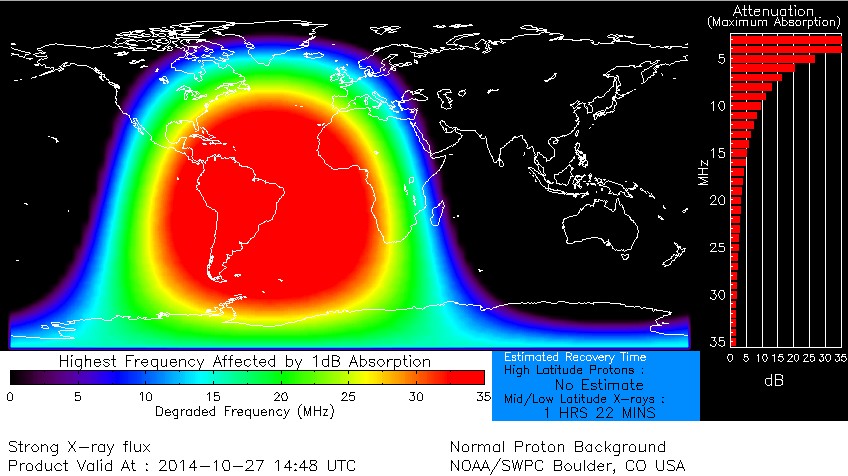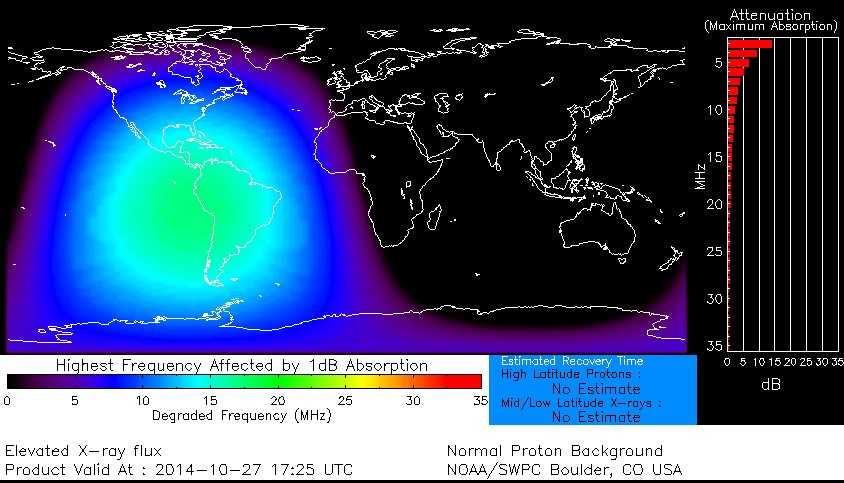Six and counting (along with 17 M-Class Flares):
- X1.1 10/19
- X1.6 10/22
- X3.1 10/24
- X1.0 10/25
- X2.0 10/26
- X2.0 10/27
This morning marked the sixth X-Class Solar Flare erupting from Solar Region 2192. Amazingly enough, none of these flares have produced a significant coronal mass ejection, which is a good thing, as that area has been in a highly geo-effective position and a string of CME collisions would surely make a mess of our ionosphere and magnetosphere.
Since these are mostly X-ray events their impact is short lived, but rather severe as you can see from the D-Layer Absorption image below which shows 10 dB absorption at 10 MHz and 3 dB at 21 MHz. At 14:48, the estimated duration is 1 hour 22 minutes.
Taken an hour later at 15:48 UTC, the situation has improved significantly. The 10 MHz absorption is down to 5 dB, and 21 MHz is about 1 db:
Finally, things are almost back to normal after about 2 hours 45 min later (the D layer is energized by the light coming from the sun, so absorption is always present during the daylight hours on lower frequencies.):











